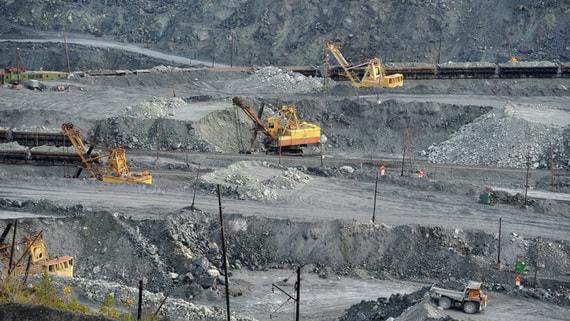EU bans investment in Russian mines and mines
[ad_1]

The Council of the European Union on December 16 approved the ninth package of sanctions against Russia, which includes a ban on new investment in the Russian mining industry, with the exception of “certain critical raw materials.” Possible exceptions include iron ore, titanium, copper, aluminium, nickel and palladium. The details of the sanctions are published in the Official Journal of the EU.
The competent EU authorities may authorize services for the import of these raw materials “on such terms as they deem necessary to secure the critical energy supply,” the statement said.
In addition, EU citizens will henceforth be prohibited from holding any positions in the governing bodies of any Russian state or controlled legal entities, organizations or bodies located in Russia.
At the same time, the EU decided to introduce a new exemption allowing assets and funds available to sanctioned persons who played “a significant role in international trade in agricultural and food products, including wheat and fertilizers, to be unfrozen prior to their listing.”
Independent industrial expert Maxim Shaposhnikov notes that the sanctions package will most likely focus on solid minerals. He recalls that in 2021 the EU published a report on the critical dependence on the supply of certain metals associated with electric transport, which, in addition to rare earth and rare metals, included copper and other electrical metals up to some aluminum alloys.
“Last year, the EU expressed the opinion that it is necessary to facilitate in every possible way the flow of these metals into the territory of the Union, up to the prohibition of the spread of sanctions against them. This year, it is clear that so far this policy is being followed,” says Shaposhnikov.
According to the expert, there is reason to believe that only basic mining industries, such as iron ore, will be hit. He also notes that there were no large investors in the extraction of solid minerals from the EU in Russia before, so the ban is more likely to be declarative.
Copper is produced in Russianornickel“(also produces nickel, platinum and palladium), UMMC and RMK, aluminum – UC Rusal.
The ninth package of EU sanctions is largely “inertial” and its content does not bring any fundamental innovations, except for new sanctioned individuals and legal entities (their names and names have not yet been published), says Ivan Timofeev, an expert at the Russian International Affairs Council. According to him, the package rather consolidates or makes more universal the already existing restrictions.
So far, there are no clarifications regarding the ban on investments in the mining industry, but in general, against the background of the general situation, it would be strange to talk about any new investments by Europeans there without sanctions, Timofeev notes.
The same applies to the ban on citizens of EU countries to hold senior positions in state-owned and state-controlled companies in Russia. In general, this practice has developed at the national level over the past year and now it has simply become universal, the expert says. There is no need to talk about any concessions on grain and fertilizers as a trend, not easing sanctions either: this is beneficial primarily to the EU, and exceptions actually already existed, Timofeev concludes.
[ad_2]
Source link





